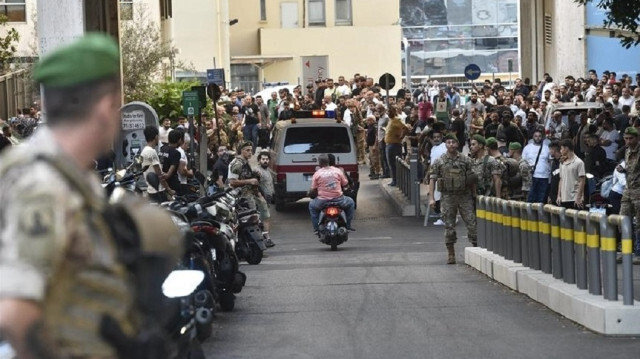Hezbollah reportedly acquired a batch of 5,000 pagers five months ago, which were allegedly rigged with explosives before entering Lebanon, according to a former Lebanese general.
On Wednesday, Mounir Shehada, an ex-brigadier general and former coordinator with the UN peacekeeping mission UNIFIL, told Anadolu that these wireless devices contained several grams of hard-to-detect explosives. These explosives were cleverly integrated within the pager batteries, making them undetectable by standard sensors or explosive detection equipment.
While the specific type of explosives has yet to be identified, ongoing laboratory tests suggest they are sophisticated and crafted from advanced materials.
Shehada explained that these materials are unlike lithium batteries, which when ignited, produce only minor flames and minimal explosions. The damage witnessed, according to video footage, was far more substantial, indicating the presence of more powerful explosives.
Shehada mentioned that determining the location or country responsible for the rigging remains premature, as it could have occurred during manufacturing or at other stages. The explosion of these pagers on Tuesday led to the deaths of at least 12 people and injuries to nearly 3,000 across multiple locations in Lebanon, including Beirut. Lebanese media speculated an Israeli connection to the incident, though there has been no official response from Israel. Meanwhile, Hezbollah has vowed retaliation against Israel.
Hezbollah’s Secretary-General, Hassan Nasrallah, is scheduled to address the nation on Thursday at 17:00 local time (1500 GMT) to discuss the explosions, the rigging of the devices, and the group’s intended response. These pager explosions have occurred amid escalating tensions between Hezbollah and Israel, exacerbated by recent cross-border conflicts following a Hamas attack on October 7 the previous year. This ongoing warfare, intensified by Israel’s offensive in Gaza, has resulted in over 41,200 fatalities.

